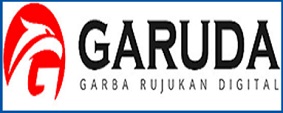Kadar TNF ( Mikroenkapsulasi Sel Punca Hematopoietik CD34+
DOI:
https://doi.org/10.31004/jn.v7i2.26029Abstract
Sel punca hematopoietik CD34+ memiliki memiliki kemampuan angiogenik, plastisitas dan sebagai imunoregulator. Hal ini menyebabkan sel punca hematopoietik CD34+ banyak digunakan pada terapi seluler. Rendahnya kemampuan proliferasi dan rendahnya viabilitas migrasi ke host, memberikan keterbatasan pendekatan terapi seluler yang menggunakan sel punca hematopoietik CD34+. Enkapsulasi mempertahankan fungsi sel punca hematopoietik CD34+ dan dapat meregulasi sistem imun. Tumor Necrosis Factor ( (TNF() merupakan molekul pro-inflamasi yang berperan penting dalam imunoregulasi. TNF( berperan penting dalam reaksi penolakan transplantasi sel punca hematopoietik CD34+. Penelitian ini menganalisa kadar TNF(pada enkapsulasi sel punca hematopoietik CD34+. Sel punca hematopoietik CD34+ dikapsulasi dengan menggunakan alginate cross linked dengan CaCl2, dan dikultur hingga 21 hari. Kadar TNF( dianalisa dengan metode ELISA. Kadar TNF( menurun pada hari ke-7 dan tidak ditemukan hingga hari ke-21. Enkapsulasi menurunkan kadar TNF( dan dapat digunakan untuk pengembangan terapi seluler sel punca hematopoietik CD34+.Downloads
Published
2023-10-31
How to Cite
Sibuea, C. V. ., Sibarani, J. P. ., Silaen, R. T., Samosir, C. br ., Kuara , G., & Ginting, K. M. M. (2023). Kadar TNF ( Mikroenkapsulasi Sel Punca Hematopoietik CD34+. Jurnal Ners, 7(2), 1879–1882. https://doi.org/10.31004/jn.v7i2.26029
Issue
Section
Articles
License
Copyright (c) 2023 Jurnal Ners

This work is licensed under a Creative Commons Attribution-ShareAlike 4.0 International License.
Authors who publish with this journal agree to the following terms: Authors retain copyright and grant the journal right of first publication with the work simultaneously licensed under a Creative Commons Attribution-ShareAlike 4.0 International License that allows others to share the work with an acknowledgement of the works authorship and initial publication in this journal. Authors are able to enter into separate, additional contractual arrangements for the non-exclusive distribution of the journals published version of the work (e.g., post it to an institutional repository or publish it in a book), with an acknowledgement of its initial publication in this journal. Authors are permitted and encouraged to post their work online (e.g., in institutional repositories or on their website) prior to and during the submission process, as it can lead to productive exchanges, as well as earlier and greater citation of published work (See The Effect of Open Access).







